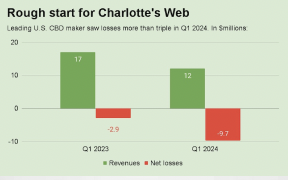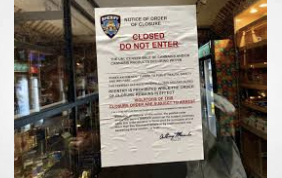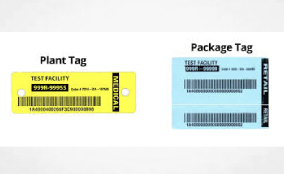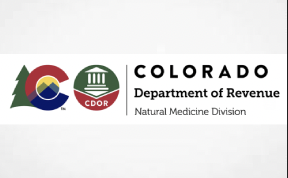Ram Dass, the spiritual teacher and Harvard researcher on the therapeutic effects of psychedelic drugs, once observed that spiritual journeys are highly personal and “can’t be organized or regulated.”
Oregon public health and revenue agencies are disproving Dass’s aphorism, creating a framework for the state’s first-in-the-nation program legalizing psilocybin-assisted therapy. While psilocybin remains a Schedule I drug under the Federal Controlled Substances Act, at least a dozen other states are monitoring Oregon and drafting their own plans to decriminalize psychedelic substances.
Oregon’s regulatory framework, which went live late last year, includes protocols for regulating and licensing manufacturers, service centers, facilitators, and laboratories handling psilocybin-producing mushrooms and other fungi. The state Department of Revenue played a pivotal role with protocols for collecting a 15% tax on the sale price of psilocybin products.
Navigating Oregon’s rigorous regulatory framework has been challenging for the 342 facilitators, 29 service centers, 12 manufacturers, and two testing laboratories licensed by the state. But the effort has yielded tangible results for thousands of clients ranging from weekend “psychonauts” to trauma victims, Iraq War veterans, and patients with terminal illnesses.
“Most of the people coming to us are coming with pretty significant mental health struggles—depression, anxiety, PTSD, addiction—and they’ve tried everything. We take their safety very seriously,” said Courtney Campbell, founder of the Portland therapy center Chariot. “We also have some people who are looking for a safe space for a strong psychedelic experience to explore altered states, wider consciousness, mystical experiences.”
Different From Cannabis
Oregon legalized psilocybin—a naturally occurring compound found in more than 200 species of mushrooms—in November 2020 under Measure 109. The ballot initiative responded to mounting medical research showing “magic mushrooms” can treat a wide range of mental health and addiction problems. The measure required the Oregon Health Authority and the Revenue Department to develop rules for the production, sale, and taxation of psilocybin, and standards for the provision of services.
The psilocybin program can’t be compared to Oregon’s approach to recreational marijuana, which became legal in 2014, or medical marijuana, which dates to 1998, said John Galvin, who manages both the psilocybin and cannabis programs for the Revenue Department.
“These are vastly different programs, because you can’t walk into a psilocybin store, buy an ounce of psilocybin, and take it home,” Galvin said. “Anytime you use this, it needs to be through a service center and supervised by a facilitator licensed by the Oregon Health Authority.”
Accessing psilocybin services isn’t a simple process, Galvin said. Clients must contact a licensed service center and attend a required preparation session with a licensed facilitator. The consultations include discussions about a client’s goals and expectations during the therapy session, along with the risks.
During the treatment, the facilitator will provide psilocybin and stay with the client throughout the experience, averaging between four and eight hours. In the following days, clients generally take part in an integration session, during which the facilitator and client process the experience and discuss options for additional support.
Campbell said the experience can cost between $1,500 and $3,000. Clients generally pay three separate charges—fees for the psilocybin, services provided by the facilitator, and rental of the therapy room.
The 15% tax is applied only to the psilocybin product. Service centers are required to file quarterly returns and remit taxes to the department by cash, check, or money order, Galvin said.
Psilocybin likely will never bring Oregon the kind of revenue it sees from cannabis. The Office of Economic Analysis recently estimated the state would collect $618,000 from the psilocybin tax during the 2023-2025 biennium, a far cry from the roughly $300 million the state expects to collect during the same period from its 17% levy on recreational marijuana, Galvin said.
‘It’s Expensive’
Campbell said demand for psilocybin services has been steady since his business launched last September, but he sees limited long-term potential without greater acceptance from the medical community and full reimbursement by public and employer-sponsored medical insurance programs.
“It’s expensive, which can be a barrier. You’re paying for a health service essentially, but it’s not a medical model,” he said. “There aren’t a ton of people with $2,000 in disposable income to pay for the experience.”
Service providers and cultivators would also benefit from a waiver from restrictions under the Controlled Substances Act and a rollback of Internal Revenue Code Section 280E, which prohibits tax writeoffs for ordinary expenses for businesses trafficking a Schedule I drug. Oregon waives Section 280E for state tax purposes.
Oregon’s program and the psilocybin market could expand over the next decade if policy makers take steps to reduce operational risks, said business attorney Dave Kopilak, who drafted Measure 109 and served on Oregon’s Psilocybin Advisory Board.
“While the facilitation model certainly has its benefits when it comes to supervision, guidance, safety, and in many cases a client’s entire psilocybin experience, it also has its challenges, because it makes access to psilocybin products substantially more expensive, thereby reducing overall access,” said Kopilak, a shareholder with Emerge Law Group in Portland. “But things will evolve, and I suspect at some point in the future the facilitation process will be optional and folks will be able to buy at least some psilocybin products from retail stores.”
States Are Watching
Policy makers in other states are monitoring Oregon’s experiment, with many eager to decriminalize psychedelics and implement their own models.
Alaska, California, Illinois, Massachusetts, Michigan, North Carolina, Pennsylvania, Vermont, and Wisconsin all considered bills in the last year supporting psychedelic-assisted therapies, according to the industry research organization Psychedelic Alpha. Several others considered bills calling for study of medical uses for psilocybin.
Colorado is already following Oregon’s example. Voters in November 2022 approved Proposition 122, decriminalizing possession and ingestion of “natural medicine,” including psilocybin. The proposition also created a process for establishment of state-sanctioned “healing centers,” which will resemble Oregon’s service centers.
In May 2023 Gov. Jared Polis (D) signed legislation directing the state to regulate and license businesses entering the psilocybin market by Dec. 31, 2024. The Department of Revenue has primary responsibility for such regulations, but no tax structure has been developed yet because the sale of psilocybin remains illegal in Colorado, department spokeswoman Heather Draper said.
With a quickly approaching deadline for the state to begin issuing production, distribution, and facilitation licenses, however, taxing psilocybin is just a matter of time, said Rachel Gillette, a cannabis-focused partner at Holland & Hart in Denver.
“I imagine the tangible property will be subject to at least regular state and local sales taxes,” she said. “I can’t imagine why this would be exempted.”

















